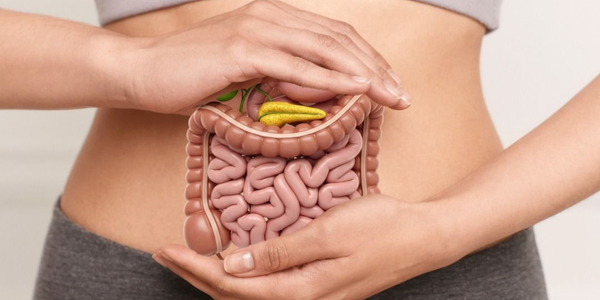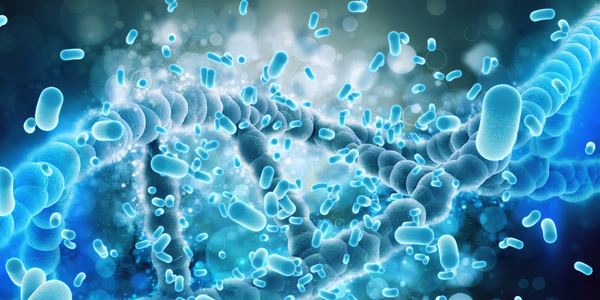Out of the many functions of the body, digestion is one of the most vital. It helps break down the food we eat into important nutrients, which the body utilizes for growth, cell repair, and energy. The digestion process is vital in converting the food and drink we consume into smaller molecules of nutrients, which the blood absorbs and carries throughout the body to build and nourish the cells. In the absence of proper digestion, you may experience constant uneasiness in the stomach, with symptoms ranging from frequent belching, flatulence, and bloating, to even gas and stomach ache. Thankfully, with a few diet and lifestyle changes, one can positively impact gut health.
How To Improve Digestion Naturally?
There are many medicines and supplements in the market that you can take to improve your digestion, but these should be your last resort. Before taking any medicines, you can try to make changes to your diet and lifestyle little by little to help improve your digestion. Let’s look at some of the digestive health tips to improve your digestion naturally.
Up Your Fiber Intake
We all know that the best way to have good digestion is to include more dietary fiber in your diet. According to research published in Nutrition Review, a diet rich in fiber reduces the risk of digestive problems such as hemorrhoids, constipation, diarrhea, ulcers, acid reflux, gastritis, and IBS. Dietary fibers are of two types - soluble and insoluble fiber.
Soluble fiber easily dissolves in water and gastric fluids and adds bulk to your stool. Insoluble fiber, on the contrary, doesn’t dissolve in water. It helps the digestive tract function usually by helping food move along without any hindrance. Foods rich in soluble fiber include nuts, beans, oats, seeds, and fruits like apples and berries, to name a few, while foods rich in insoluble fiber consist of whole grains, wheat bran, vegetables, and skins of fruits.
Another type of dietary fiber is prebiotics, which acts as food to the good bacteria thriving in the gut. As per a 2013 research published in the Journal of Nutritional Biochemistry, those whose diet is rich in fiber, show a reduced risk of inflammatory bowel problems. Some of the most common forms of prebiotics include garlic, onions, asparagus, artichoke, dandelion greens, bananas, leeks, and chicory root. The inulin extracted from chicory root is used to make supplements that help in gut health improvement.
If your diet doesn't provide enough fiber, start taking Wellbeing Nutrition's Probiotic + Prebiotic effervescent tablets for 21 days. It will help you improve digestive balance with a combination of six active probiotic cultures and prebiotic fiber obtained from Apple Pomace and Chicory root.
Stay Hydrated
Water plays a vital role in the entire digestive process. Water and other forms of fluid help break down the food we eat so that the body can absorb the nutrients to produce energy. A low intake of water will also not allow the bowels to move freely, causing severe constipation. Experts recommend drinking at least 2 litres of water daily. The more you weigh and exercise, the more water/fluids you need to drink. Similarly, the warmer the place you live in, the more water you will require to sustain. You can also add the number of cups of herbal tea you drink and the fruits and vegetables (with higher water content) you consume in your daily fluid intake.
Watch What You Eat
Mindful eating plays a very significant part in improving your digestion. It is a practice of paying close attention to the food you eat. Watching what you eat is a good habit as it keeps your body weight in check and ensures that the food you eat is healthy and easy to digest. A diet high in saturated fats, food additives, sugar, and refined carbohydrates tends to increase the risk of developing digestive problems and gut inflammation. On the contrary, a diet rich in whole foods and deficient in processed foods is good for digestion.
Not just what you eat but how you eat is essential when it comes to digestion. If you eat too quickly, you don’t get to pay attention to the food you eat, leading to gas, bloating, and even indigestion. What most people tend to neglect is that the process of digestion begins in the mouth. The teeth break down the food into smaller pieces, which the enzymes in the digestive tract are later able to break down.
If you don’t chew your food well, it leads to poor nutrient absorption. On the other hand, when you chew your food thoroughly, your stomach needs to do less to turn solid food into the liquid mixture that enters your small intestine. If you chew your food for a longer time, your mouth secretes more saliva, which helps in breaking down the food into small pieces. This saliva then acts as fluid in your stomach, which mixes with the solid foods and allows them to pass through your intestines smoothly.
Manage Your Stress
Stress is awful for digestion. It triggers gut health issues such as constipation, diarrhea, acidity, and even IBS, when chronic. When you’re going through a stressful situation, the body goes through a fight or flight mode situation when it thinks it doesn’t have the time to get enough rest or digest food. During intervals of stress, the blood and energy get diverted away from the digestive system, causing havoc on the gut.
If digestion is poor, your sleep is bound to get affected, which will further hurt your mood and mental health. Read our article, ‘Gut Health & Sleep: What's The Connection?’,to know how. The best way to keep stress at bay is by undertaking a few mindfulness exercises such as meditation, yoga, pranayama (breathing exercises), tai chi, etc.
Exercise Regularly
A sedentary lifestyle is a primary reason for a majority of gut health-related complaints. Exercising regulates digestion. Regular exercise and gravity help the food pass through the digestive tract without any problem. That is why most people prefer to go for a walk after their meals to help with digestion. A study published in the Scandinavian Journal of Gastroenterology shows how when people with constipation followed a daily walking regimen of 30 minutes, they experienced significant improvements. Furthermore, research shows how exercising regularly prevents the risk of developing chronic inflammation and prevents symptoms of inflammatory bowel diseases.
Final Takeaway
For the proper functioning of your body, it is important that you have a sound digestive system. Apart from improving your digestion in the aforementioned ways, ditch certain bad habits such as smoking, drinking alcohol in excess, and binging on late night snacks, as they can cause acidity, gas, bloating, and other gastric issues.
Supplementing your diet with probiotics and multivitamins such as vitamin C tablets, zinc, and glutamine, to name a few will also aid the digestive system in working to its full potential.
Research:
● Health benefits of dietary fiber, James W Anderson, Pat Baird, Richard H Davis Jr, Stefanie Ferreri, Mary Knudtson, Ashraf Koraym, Valerie Waters, Christine L Williams, Nutrition Review, doi: 10.1111/j.1753-4887.2009.00189, (https://pubmed.ncbi.nlm.nih.gov/19335713/)
● Nutritional protective mechanisms against gut inflammation, Monica Viladomiu, Raquel Hontecillas, Lijuan Yuan, Pinyi Lu, Josep Bassaganya-Riera, The Journal of Nutritional Biochemistry, 2013, (https://pubmed.ncbi.nlm.nih.gov/23541470/).
● Water and fluid intake in the prevention and treatment of functional constipation in children and adolescents: is there evidence?, Sabine Nunes Boilesen, Soraia Tahan, Francine Canova Dias, Lígia Cristina Fonseca Lahoz Melli, Mauro Batista de Morais, Jornal de Pedatria, 2017,doi: 10.1016/j.jped.2017.01.005, (https://pubmed.ncbi.nlm.nih.gov/28450053/)
● Mindfulness-based therapies in the treatment of functional gastrointestinal disorders: a meta-analysis, Monique Aucoin, Marie-Jasmine Lalonde-Parsi, Kieran Cooley, Evidence-based Complementary and Alternative Medicine, 2014, DOI: 10.1155/2014/140724, (https://pubmed.ncbi.nlm.nih.gov/25295066/)
● https://www.health.harvard.edu/blog/why-eating-slowly-may-help-you-feel-full-faster-20101019605
● Impact of psychological stress on irritable bowel syndrome, Hong-Yan Qin, Chung-Wah Cheng, Xu-Dong Tang, Zhao-Xiang Bian, World Journal of Gastroenterology, 2014, doi: 10.3748/wjg.v20.i39.14126, (https://pubmed.ncbi.nlm.nih.gov/25339801/)
● Effects of regular physical activity on defecation pattern in middle-aged patients complaining of chronic constipation, Anneke M De Schryver, Yolande C Keulemans, Harry P Peters, Louis M Akkermans, André J Smout, Wouter R De Vries, Gerard P van Berge-Henegouwen, Scandinavian Journal of Gastroenterology, 2005, doi: 10.1080/00365520510011641, (https://pubmed.ncbi.nlm.nih.gov/16028436/)
● The Role of Physical Exercise in Inflammatory Bowel Disease, Jan Bilski, Bartosz Brzozowski, Agnieszka Mazur-Bialy, Zbigniew Sliwowski, and Tomasz Brzozowski, Biomed Research International, 2014, doi: 10.1155/2014/42903, (https://www.ncbi.nlm.nih.gov/pmc/articles/PMC4022156/)


























Leave a comment